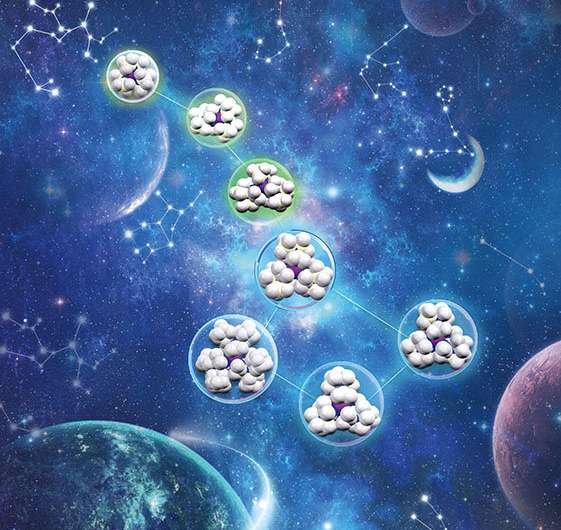Shining light on the separation of rare earth metals

Inside smartphones and computer displays are metals known as the rare earths. Mining and purifying these metals involves waste- and energy-intense processes. Better processes are needed. Previous work has shown that specific rare earth elements absorb light energy that can change their chemical behavior and make them easier to separate. Now, researchers have revealed how certain molecular structures can improve the efficiency of this light-driven chemistry to separate cerium, a rare earth element.
The 17 rare earth elements are chemically similar. Methods used to purify the desired elements from natural sources produce massive quantities of waste. Purifying one ton of a rare earth element creates tons of acidic and radioactive waste. The processes are also energy intensive. Knowing how to efficiently use light to separate selected rare earths could reduce waste and lower costs. New methods for recycling europium and other rare earths using light-driven chemistry is also an important direction to diversify the supply chain for these critical elements.
Rare earth element-containing materials are irreplaceable and used widely in technologies such as lighting, displays, biological sensors, lasers, electric cars, and smartphones. However, rare earth separations by conventional solvent extraction or ion-exchange chromatography methods are time-consuming, require substantial cost, and are unsustainable. Photochemical-based separation has been examined as a promising preprocessing step to separate redox-active rare earths, especially europium, from mined ore mixtures.
New methods for recycling of europium and other rare earths using photochemistry is also an important direction for diversifying the supply chain. Among the rare earths, several members, such as cerium, samarium, europium, and ytterbium, absorb light through relevant electronic 4f-5d transitions. Current photoredox separations methods are not practical because of their need for intense light sources. Controlling and exploiting the 4f-5d transitions for these elements is important for achieving applications in photoredox rare earth separations. Recently, a group of researchers from the University of Pennsylvania and the University of Buffalo developed a combined experimental and computational study to understand and control the photophysics of luminescent cerium complexes.
The team designed and synthesized a series of cerium(III) complexes that allowed for identification of key structural features that enabled predictive and tunable quantum yields, and therefore brightness. Moreover, the team performed comprehensive computational analyses of guanidinate-amide and guanidinate-aryloxide luminescent cerium(III) complexes. The computational data afforded rationalization of the differences in Stokes shifts (luminescent colors) of these compounds. These quantitative structure-luminescence models are expected to contribute to the photoredox separations of rare-earth-containing products whose 4f-5d electronic transitions can be tuned and exploited in the visible and ultraviolet range for efficient, green, and potentially low cost photochemical-based separations.
More information: Yusen Qiao et al. Understanding and Controlling the Emission Brightness and Color of Molecular Cerium Luminophores, Journal of the American Chemical Society (2018). DOI: 10.1021/jacs.7b13339
Journal information: Journal of the American Chemical Society
Provided by US Department of Energy



















